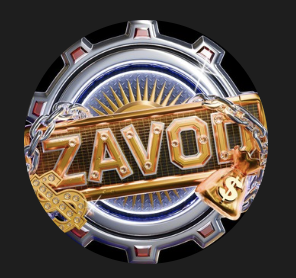English
Bonus Hunter
Bonus Hunter by BeInCrypto helps you discover the best crypto airdrops, bounties, and reward programs.
All
Discount
Tournament Reward
Retrodrop
Trading Bonus
Staking reward
🎄Christmas Bonus
Reduced Commission
Points System
Sign Up Bonus
Receive Up To $30,000 Deposit Reward
DATES
15 days left
PRIZE POOL
3% match on deposit
REQUIREMENTS
Deposit
LOCATION
Worldwide
Get a 3% IRA match
DATES
Until further notice
PRIZE POOL
Up to $240 retirement boost
REQUIREMENTS
Sign Up, Complete tasks
LOCATION
USA
Join Figure Markets and Earn Up To $200 Welcome Bonus
DATES
Until further notice
PRIZE POOL
Up to $200
REQUIREMENTS
Sign Up, Deposit, Trade
LOCATION
United States
BeInCrypto × Binance Special Rewards
DATES
Until further notice
PRIZE POOL
$600 Trading Fee Credit
REQUIREMENTS
Sign Up, KYC, Deposit, Trade
LOCATION
Worldwide
SmartSTAX: New Bitcoin Investing Strategy
DATES
Until further notice
PRIZE POOL
Up to 110% higher returns vs DCA
REQUIREMENTS
Sign Up
LOCATION
EEA
Get up to 15,000 USDT welcome bonus
DATES
Until further notice
PRIZE POOL
Up to 15,000 USDT
REQUIREMENTS
Sign Up, Deposit, Trade
LOCATION
Worldwide
Welcome offer for new traders
DATES
Until further notice
PRIZE POOL
Up to 6,200 USDT
REQUIREMENTS
Sign Up, KYC, Deposit, Trade
LOCATION
Worldwide
Earn rewards on stablecoins and more
DATES
Until further notice
PRIZE POOL
5.25% on USBC, 5% on RLUSD.
REQUIREMENTS
Deposit, Trade, Complete tasks
LOCATION
USA
Get your reward stock from America’s leading companies
DATES
Until further notice
PRIZE POOL
Up to $200 in stocks
REQUIREMENTS
Sign Up, Complete tasks
LOCATION
USA
BitcoinMaxi Challenge: Enter Prop Trading
DATES
Until further notice
PRIZE POOL
20% off all BitcoinMaxi Challenges
REQUIREMENTS
Sign Up, Trade
LOCATION
Worldwide
Exclusive BeInCrypto 20% Deposit Bonus
DATES
Until further notice
PRIZE POOL
20% deposit bonus
REQUIREMENTS
Sign Up
LOCATION
Malta, Venezuela, Spain
Gamified futures trading quests
DATES
Until further notice
PRIZE POOL
Up to 888 USDT in trading bonuses
REQUIREMENTS
Trade
LOCATION
Worldwide
Welcome bonus for new traders
DATES
Until further notice
PRIZE POOL
$25 in BTC
REQUIREMENTS
Sign Up, Deposit, Trade
LOCATION
USA
Bonus up to $100
DATES
Until further notice
PRIZE POOL
$100
REQUIREMENTS
Sign Up, Deposit
LOCATION
Worldwide
Get up to $200 bonus
DATES
Until further notice
PRIZE POOL
$3-$200
REQUIREMENTS
Sign Up
LOCATION
USA
Earn on stablecoins
DATES
Until further notice
PRIZE POOL
Up to 6.86% APY
REQUIREMENTS
Stake
LOCATION
Worldwide
ZAVOD tap-to-earn game
DATES
Until further notice
PRIZE POOL
In-game ZP tokens
REQUIREMENTS
Sign Up, Quests, Tap to earn
LOCATION
Worldwide
The Bitcoin Credit Card cashback
DATES
Until further notice
PRIZE POOL
$200 Bonus Crypto Reward
REQUIREMENTS
Sign Up
LOCATION
USA
Instant deposit 100% bonus
DATES
Until further notice
PRIZE POOL
up to $10,000
REQUIREMENTS
Deposit, Sign Up
LOCATION
Europe
Start trading with welcome bonuses
DATES
Until further notice
PRIZE POOL
Up to 10,055 USDT in coupons and bonuses
REQUIREMENTS
Sign Up, Deposit, Trade
LOCATION
Worldwide
















